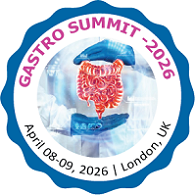Call for Abstract
Scientific Program
14th World Gastro Summit, will be organized around the theme “Advancing Digestive Health: Innovation, Integration & Impact”
Gastrosummit 2026 is comprised of keynote and speakers sessions on latest cutting edge research designed to offer comprehensive global discussions that address current issues in Gastrosummit 2026
Submit your abstract to any of the mentioned tracks.
Register now for the conference by choosing an appropriate package suitable to you.

